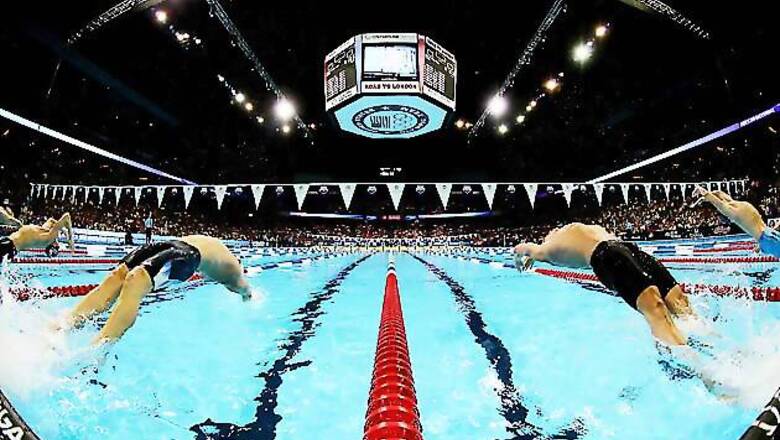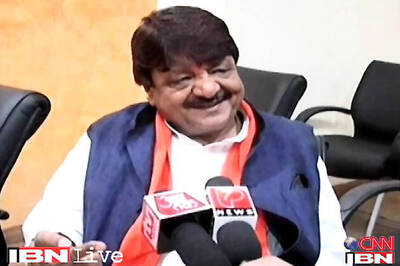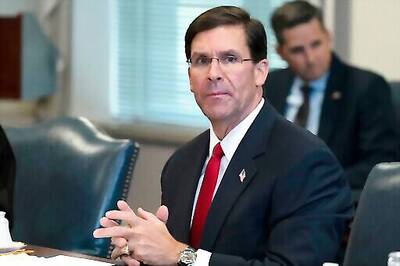
views
Melbourne: Australia's three-gold performance at the World Championships has raised hopes the former swimming power can re-capture its glory days after a dismal year marked by Olympic failure and a number of controversies out of the pool.
Australia finished fourth in the final standings in Spain behind the United States, China and France, but their total of 13 medals was beaten only by the Americans and they boasted an encouraging 10 silvers.
The haul, highlighted by golds in both the men's and women's 100 metres freestyle, was a big improvement on the solitary women's relay gold won from the London Games, where the team slumped to its lowest Olympic haul in 20 years.
It also helped expunge some of the negative fall-out from London, which saw the men's freestyle relay team plunged into scandal for taking a sedative in a team-bonding exercise, and the nation's swimming establishment slammed for allowing culture problems to fester.
"It was a really positive step forward," Australia's former freestyle world champion Daniel Kowalski told Reuters on Monday.
"To surpass the performances of last year is a massive step in the right direction and provided the swimmers with the opportunity to let that do the talking.
"Obviously a lot has been said (about them).
"Now they've put performances on the board and have really done their part in helping to rebuild after what's been a really tough year."
James Magnussen celebrated a successful defence of his 100m freestyle world title, capping a difficult period in which he was pilloried for swimming poorly in the men's relay at London and missing out on gold in the individual event.
Cate Campbell's triumph in the women's 100m freestyle ensured Australia would hold both crowns in the blue-riband distance for the first time since the 1960 Mexico Olympics, and came after she was ruled out of the London race after contracting pancreatitis.
Like all other nations, however, Australia were trounced by the Americans, who finished with 13 golds from a total of 29 medals, with the brilliant Missy Franklin claiming six titles alone.
Australia have yet to unearth a new generation of medal-making machines following the retirements of a raft of champions including five-time Olympic gold medallist Ian Thorpe and 1,500m freestyle great Grant Hackett. Other nations, meanwhile, like China and France, have caught up.
Kowalski, who captured a freestyle relay gold at the 2000 Sydney Games and was a fixture of Australia's dominant teams of the 1990s, said the American feats in Barcelona were "scary".
The Australians, however, were well-placed to chip away at their dominance, with team members, coaches and officials back on the same page, and only a few months after independent reviews into the London flop alleged the team was riven by bullying, infighting and allegations of favouritism.
"I think they've been provided a number of opportunities post-London to air their feelings, air their grievances," Kowalski, general manager of the Australian Swimmers Association, said of the team.
"Definitely, it (team unity) is the strongest it's been probably since about 2008.
"We just have to get the public and commentators to start to see that the sport is trying and I think that this is a great first step."
The next step may be to secure a new head coach after Leigh Nugent resigned earlier this year following a barrage of media criticism for failing to deal with team indiscipline during the London Games.
Swimming Australia appointed caretakers Michael Bohl and Rohan Taylor to lead the women and men's teams respectively at the World Championships, and the governing body was interviewing candidates in Europe for the permanent head role, local media reported.
The successful candidate would need to have a thick skin to lead a nation that produced the likes of Dawn Fraser and Thorpe, and has been dismayed by the loss of clout in the pool, Kowalski suggested.
"It's a great role, but it's also a tough role to walk into because there's a lot of expectation and history and tradition," he said.
"But whoever they are, I think they should feel confident that there is a structure in place now, and support and people who want to get the sport back to where it was previously and do it collectively."




















Comments
0 comment